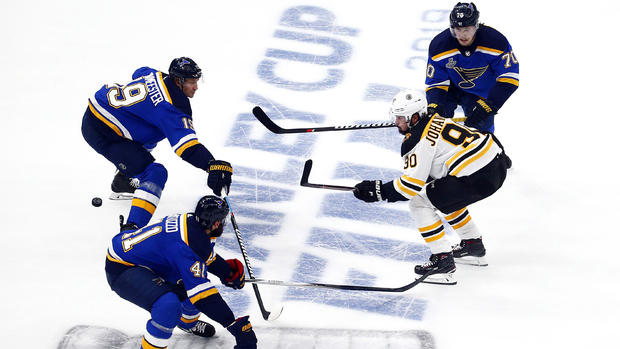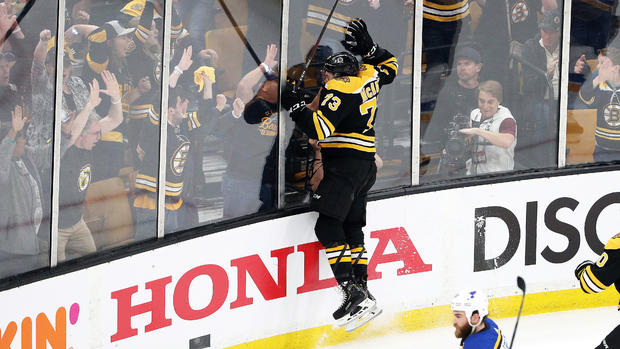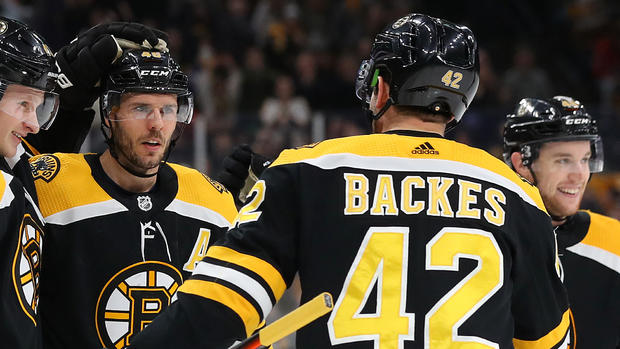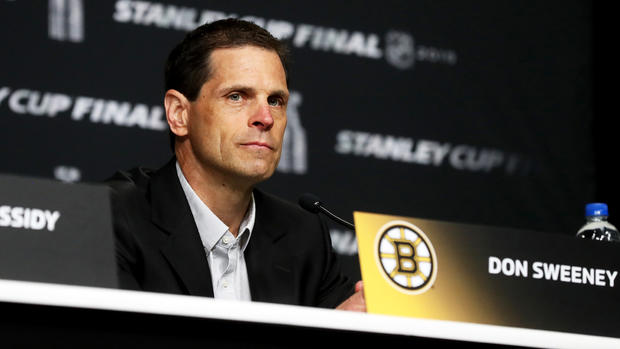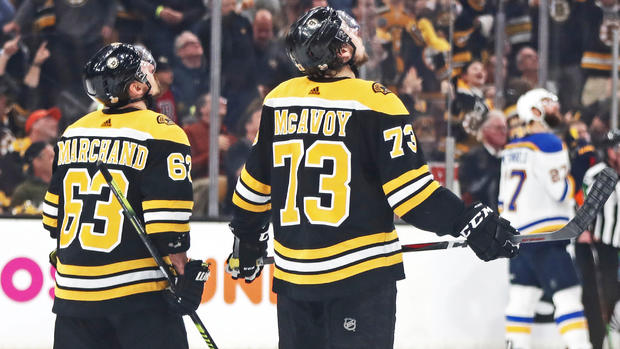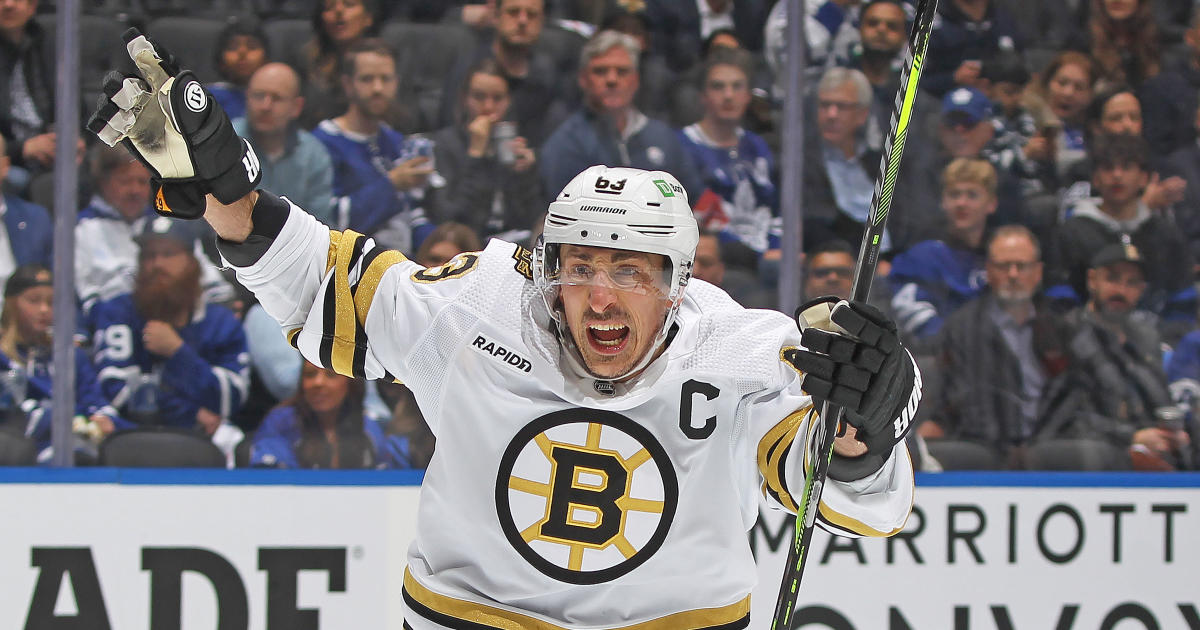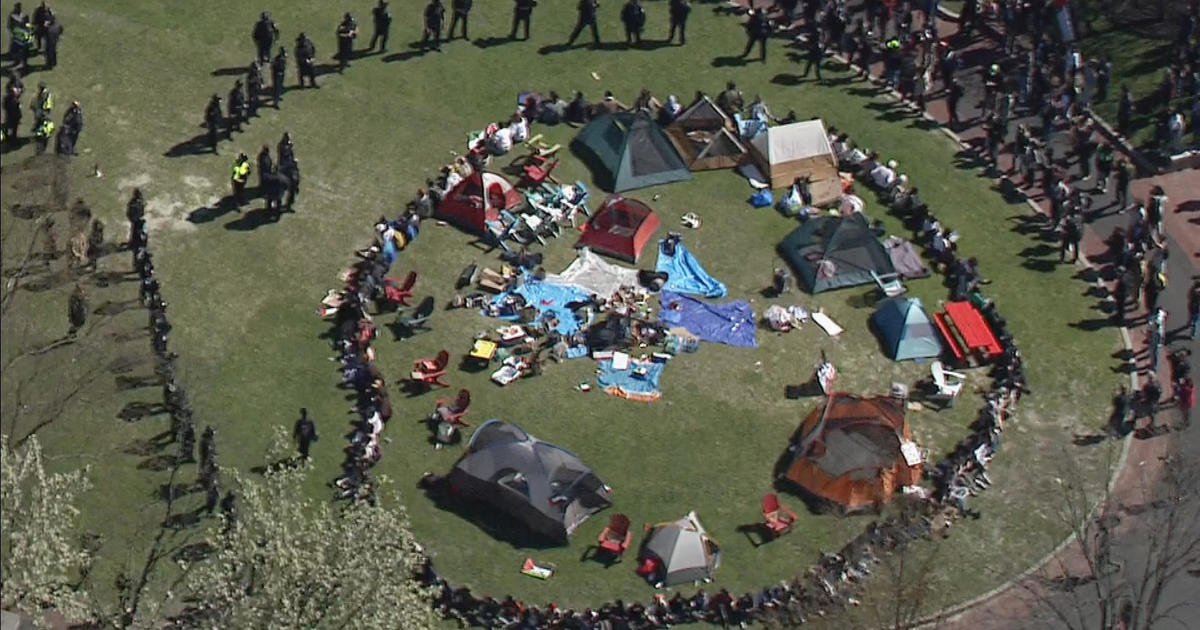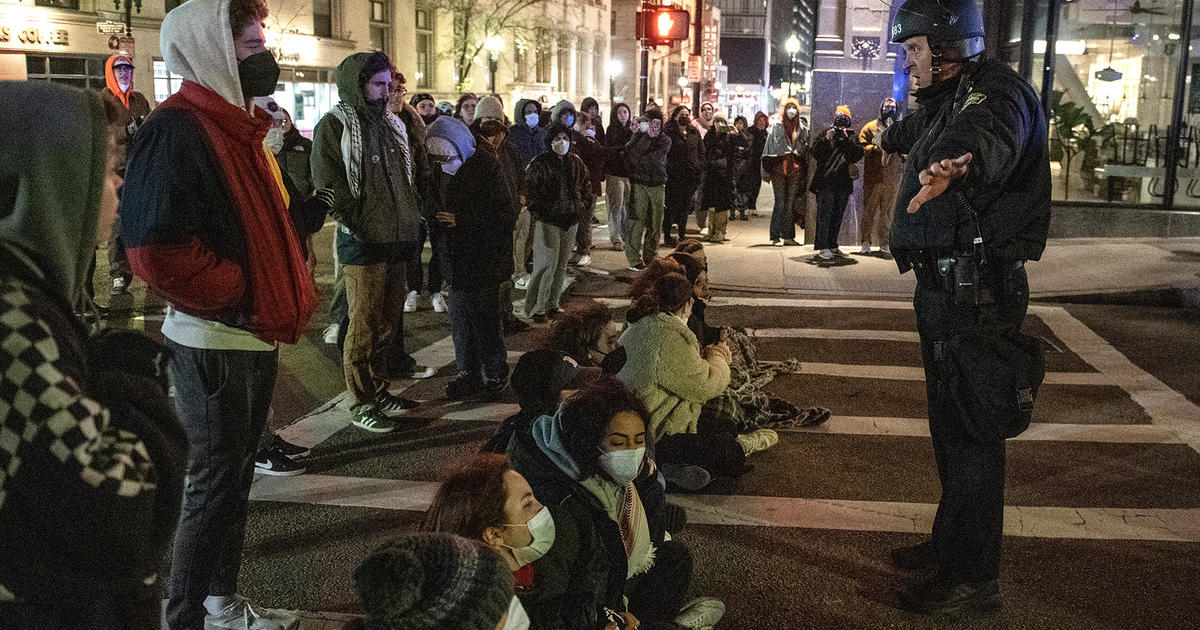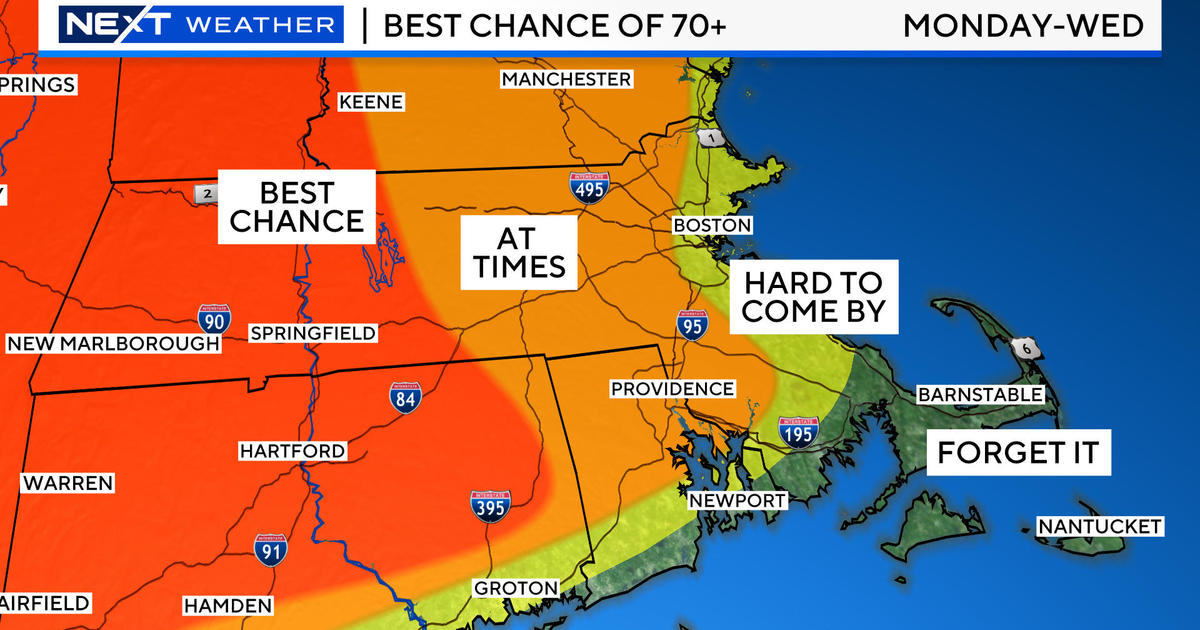What's Next For Bruins, And What Still Stings About Stanley Cup Final Loss
By Michael Hurley, CBS Boston
BOSTON (CBS) -- Nearly a week has passed since the disappointing end to the season for the Boston Bruins. They had a chance to partake in one of the greatest competitions in all of sports -- Game 7 of the Stanley Cup Final -- only to ultimately turn that evening into a complete and utter dud for the city of Boston.
As you might imagine, the sting is not going to fade for a long while.
At the same time, Bruins players appeared to have done their best to shake off the pain of losing by partaking in what appeared to be a party of championship proportion over the weekend. Videos were shared on social media of Brad Marchand and Tuukka Rask (and presumably other Bruins) ripping it up at a party that was complete with confetti and fog machines and a DJ screaming things into a microphone. As a result, places like Golf Digest are writing about the big party.
Surely, partying after losing looks strange, and certain segments of fans who are still in the depths of sports depression aren't interested in seeing that such a party existed. But just as surely, the Bruins themselves are looking to forget about what happened, while also looking to spend one last night together as a team before the inevitable offseason roster changes take place.
Aside from irking a segment of Bruins fans and providing a chuckle or two to fans of other teams, the Stanley Cup Losing Party probably won't be remembered as a seminal moment in Bruins history, nor does it make any statements about the championship-winning ability of the players in attendance. (Rob Gronkowski danced like a madman to LMFAO after losing Super Bowl XLVI, and he went on to have a Hall of Fame career with two Super Bowl victories over the next seven years.)
So, with the book officially closed on the 2018-19 season and the Stanley Cup Final, it's worth looking ahead to what comes next for the Bruins, and also look back at what still stands out after some time of reflection.
FREE AGENCY
The Bruins have three players hitting unrestricted free agency: Marcus Johansson, Noel Acciari, and Steven Kampfer.
Kampfer, who played 35 regular-season games and three playoff games, is likely as good as gone.
Acciari presumably could be brought back at a reasonable price (he made $750,000 last year), but after making a name for himself as a valuable fourth-line contributor, he may be see a team offer him a pay raise, similar to Tim Schaller a year prior.
Johansson may be a bit difficult for Boston to afford. He's 28 years old, and though his numbers didn't necessarily reflect it, he might have been the Bruins' best forward over the latter half of their postseason run. Smooth with the puck and strong with possession in the offensive zone, Johansson and linemate Charlie Coyle were very difficult to play against all postseason long.
He worked in a third-line role for the Bruins, but a handful of teams will likely eye him as a top-six talent and thus be willing to pay him accordingly. After making $4.75 million per season over the last three years, it's very likely Johansson makes over $5 million annually in his next contract. And with the money the Bruins will be paying their restricted free agents, the math may not end up working.
If Johansson does depart, it would be difficult to give anything but a passing mark on the trade Don Sweeney made to acquire him. Sweeney gave up a second- and fourth-round pick for Johansson back in February, and the winger battled through a bruised lung suffered in the regular season to contribute to a near championship. It was a deal worth making.
RESTRICTED FREE AGENCY
The Bruins have some very important decisions to make with restricted free agents. On the back end, there's budding superstar Charlie McAvoy and solid D-man Brandon Carlo. Up front, Danton Heinen is also a restricted free agent.
McAvoy remains the most important piece. With $5.25 million owed to Torey Krug next year (the final year of his contract), and with $7.25 million owed to the trio of John Moore ($2.75m), Kevan Miller ($2.5m) and Zdeno Chara ($2m), there's only so much money the Bruins can dedicate to the blue line. McAvoy stated last week that he wants to remain in Boston forever (he went to BU and seems to enjoy playing hockey in the city), and he's due at the very least an annual salary between $5 million and $6 million. It's a situation where if both sides truly want to get it done, a deal can be reached.
Carlo, meanwhile, proved himself to be a very valuable commodity in his third NHL season. He's not an offensive force (14 points combined in 96 regular-season and postseason games this past season), but 6-foot-5 D-men who can lock down a second-pairing role on a title contender are rare finds in the NHL. After making some $800,000 last season, Carlo is due a big bump. That lack of offense will likely prevent it from climbing to an unreasonable rate, but with Zdeno Chara entering an age 42 season, the Bruins will need to keep Carlo aboard, likely as a defensive anchor for years to come.
Heinen's age 23 season was a notable step backward from his campaign a year prior, as he went from 16-31-47 totals in 2017-18 to 11-23-34 totals in 2018-19. In the playoffs, Heinen managed just two goals and six assists in 24 games played. Head coach Bruce Cassidy clearly felt confidence in Heinen, though, and the coach likely appreciated Heinen's ability and willingness to move up and down the lineup, skating on all three of the top lines throughout the year. Given his young age, he's no doubt getting a big bump in pay (he made less than $1 million last year). The Bruins presumably should still be able to afford him.
BUYOUTS/TRADES
Whenever a team is in need of generating cap space, the highest salaries always get the first look. For the Bruins, David Krejci's $7.25 million and David Backes' albatross of a $6 million annual salary jump to the front of the line.
Krejci was a very productive player for Boston last year, despite having uncertainty on his wings for what felt like the fifth straight season. Krejci recorded 73 points, tying a career-high, in the regular season, before posting 4-12-16 totals in 24 playoff games. At 32 years old, Krejci is far from finished, and he'll likely be a solid offensive contributor for several years. But if the Bruins can find an appealing way to move that $7.25 million off the books, it would not be a complete shock.
As for Backes, there aren't many options available to Sweeney. As Fluto Shinzawa laid out on The Athletic, a buyout of Backes would provide "minimal savings" to the Bruins. Once a reliable two-way forward, Backes ended up assuming more of a fourth-line, enforcer type of role just to get on the ice this season. In the playoffs, he did make an impact with his physical play, as the Bruins rattled off eight straight wins after Cassidy re-inserted Backes. Still, with just two goals in the playoffs and seven goals during the regular season, there's no way Backes can fulfill the expectations from that $6 million salary. The Bruins, though, may be stuck paying it for two more years. Don Sweeney stated Monday that Backes is a part of the team, indicating the Bruins expect him to be on the roster next year.
(Given that Jaroslav Halak was the NHL's best goaltender through a month last year, and given Tuukka Rask's magnificent postseason, it is perhaps possible to envision a scenario where the Bruins trade Rask away, thus clearing $7 million off the salary cap. That, though, still feels like more of a fantasy hockey trade than one from the real world at this point in time.)
DRAFT PICKS
The Bruins own the following picks in this month's draft:
- First round, No. 30 overall
- Third round. No. 92 overall
- Fifth round, No. 154 overall
- Sixth round, No. 185 overall
- Seventh round, No. 192 overall
Without a top-10 or even top-20 pick, it would be unrealistic to expect the Bruins to draft a player who could impact the team immediately. Might they get lucky and find a Patrice Bergeron who can make the roster as a rookie after getting drafted outside of the top half of the first round? Anything is possible. But more realistically, the Bruins will be restocking the cupboards, so to speak.
In terms of draft picks from recent years who may be ready to make a jump: Defenseman Urho Vaakanainen and forwards Jack Studnicka, Jakub Lauko and Trent Frederic figure to be in the training camp mix.
LINGERING STANLEY CUP THOUGHTS
--The Bruins were very forthcoming about the injuries they played through during the playoffs, and it naturally received quite a bit of attention. But ... is it possible they were a bit too eager to share their ailments with the world?
While yes, certain injuries no doubt played significant roles in limiting some players, the sharing of minor groin issues does seem to be a bit much.
Let's hear about the broken sternums and the jaw fractures, yes. But -- just one man's opinion -- let's keep the soft tissue stuff and minor sprains to a minimum. It's understood that playing 20-plus extra games of hyper-intense hockey is going to lead to some tweaked and sore muscles. (Kevan Miller, with his broken kneecap, would love to have the luxury of only feeling a tweaked muscle at the moment.)
The fact that Ryan O'Reilly earned himself the Conn Smythe Trophy while playing with a cracked rib certainly helps put all of those Bruins injuries in perspective.
--Are we being too hard on Brad Marchand? He did finish tied with Ryan O'Reilly for most points in the playoffs. And 23 points in 24 playoff games is pretty good. It's difficult to quibble with a near-point-per-game pace in the postseason.
Clearly, David Pastrnak didn't live up to his regular-season performance, going from 81 points in 61 games (1.23 points per game) to 19 points in 24 games (0.79 points per game). And Patrice Bergeron followed up his career-best season (79 points in 65 games; 1.22 points per game) with a similar step back (17 points in 24 games; 0.71 points per game) in the playoffs. Pastrnak later revealed that he aggravated his thumb injury, but that hardly explained his inability to keep his legs underneath him, his hesitancy to absorb contact (thus giving up the puck), and his multiple flubbed one-timers in Game 7.
Marchand dipped, too, going from 1.27 points per game in the regular season to 0.96 points per game. But -- and this applies to all three of the Bruins' top liners -- such a dip is expected when you're not longer playing Ottawa and New Jersey on Tuesday nights in December.
--Then again, the doomed Game 7 line change may be rightfully coloring everything with a dark brush. While opinions are barely as valuable as a 20-cent chicken wing, I genuinely believe the entirety of Game 7 changed with Marchand's fateful decision to stop skating with 12 seconds left in the first period. A one-goal deficit after a first period which they dominated would have been a piece of cake for the Bruins to brush aside. They spent the entire postseason overcoming challenges, from ...
--Facing elimination in Toronto in round one, only to win two straight games by a combined score of 9-3.
--Shaking off two heartbreaking losses to fall behind Columbus 2-1 in the second round, only to rattle off three straight wins (combined score of 11-4) to eliminate the Blue Jackets. In that series, a goal scored by Columbus after the puck clearly had hit the netting and another goal awarded after video review that lacked clear and obvious evidence were proven meaningless. The Bruins simply played through the bumps along the way.
--Not missing a beat in Game 1 against Carolina, when Charlie McAvoy was suspended, and likewise not suffering any setbacks when Zdeno Chara couldn't play in Game 4. The Bruins won those two games -- games where a member of their top pairing was missing -- by a combined score of 9-2.
--Staring elimination in the face in a rowdy and hyped-up Enterprise Arena in Game 6 of the Stanley Cup Final, and responding by dominating the Blues to the tune of a 5-1 final.
A 1-0 deficit through 20 minutes would have just been another checkmark on that impressive list. But a two-goal deficit against the big-bodied stifling style of the Blues was simply too much to overcome.
--As for meting out blame on that second goal, Tuukka Rask has gotten a ton of criticism. Fair enough. After playing remarkably well for the previous 1,180 minutes of playoff hockey, he left an opening in the six-hole against Alex Pietrangelo. There really was no scouting report on Pietrangelo's move in a breakaway-type of situation (he's taken two career shootout attempts, failing to score on both), so combine that with Rask likely not exactly being ready for that 2-on-1 rush in the final seconds of the period, and with Charlie McAvoy chasing Jaden Schwartz away from the play, and it was a true mess all over the ice.
None of it happens, though, if not for the bad decision by Marchand to try to get off the ice with 12 seconds left in the period.
--In terms of missed opportunities, the Bruins' inability to land shots on net in Game 4 still stands out as the largest. While he was largely helpless on some, rookie goaltender Jordan Binnington allowed five goals on 19 shots in Game 3, getting yanked on home ice in St. Louis' first night hosting the Cup Final in decades. It could have been a devastating moment for Binnington, but the Bruins let him off the hook in Game 4, when they generated just 23 shots on goal. Binnington allowed two goals on those 23 shots, and it stands to reason that if the Bruins had been able to bring their normal offensive game, they could have made it out of Game 4 with a dominant 3-1 series lead. Instead it was all tied up, and the series changed entirely.
That offensive shutdown in Game 4 plus Marchand's simple mistake in Game 7 are probably what makes the Cup Final loss feel most like a lost opportunity for the Bruins. And it's likely to feel that way for a very long time.
You can email Michael Hurley or find him on Twitter @michaelFhurley.
